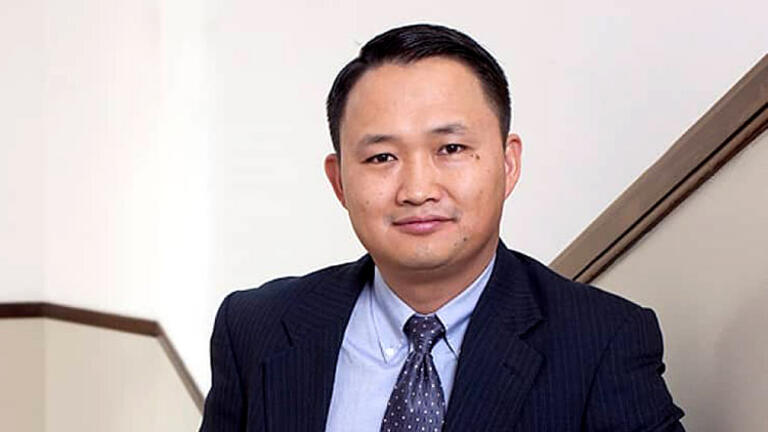Researching the Complexities in Entrepreneurship
Associate professor Liang Wang recently had an article of his published on the topic of the “Social Structure of Entrepreneurship: The Impacts of Collective Action of Incumbents on De Novo Entrants.” The article focuses on “how business associations as collective action organizations established by incumbents to promote and safeguard group-wide interests contribute to de novo entrants.”
You may be wondering, what does this mean? Wang provided an in-depth breakdown. To begin, he explained that a de novo entrant and a startup are terms that are used interchangeably. “De novo entrants are those new ventures that start from scratch… de alio entrants are those new ventures that are created by an incumbent firm.” As for incumbents—those are existing firms and “collective actions are what they do in a collective manner for their common interests.” An example of a collective action of incumbents could be a “training program for skilled workers… including de novo entrants;” the training program itself is beneficial to the entirety of the staff and can be utilized as a resource for the startup. However, at the same time, the incumbents may take a collective action that creates barriers for de novo entrants. “As you can see, collective action of incumbents can be a double-edge sword,” said Wang. “The goal of the paper is to disentangle the puzzle.”
Yet how does the collective action of incumbents in pursuit of their own benefits affect De Novo entrants? And what does this mean for the incumbents and the new entrants respectively? Wang explained that although both perspectives of the incumbents and de novo entrants may be valid, not everyone can always be satisfied by the incumbents’ collective actions.
Collective actions that are organized by business associations do facilitate networking, the development of trust, and collaboration and collective representation; thus, they help to build industry clusters with more social capital, lower transaction costs, faster knowledge dissemination, a more visible regional identity, and consequently more entrepreneurial activities.
LIANG WANG
Associate Professor
USF SCHOOL OF MANAGEMENT
This sounds like all positives, so how could anything go wrong for the de novo entrants? Wang explained, that obstacles arise because “the functions of business associations are directed toward the representation of the existing members;” this causes “a dense social structure” that “favors the status quo in the industry cluster.” This is where issues for de novo entrants begin as some startups “may disrupt the status quo in the industry cluster” with more creative and unconventional missions. Therefore, when collective actions are made by incumbents, there is potential for de novo entrants to be hindered in their work.
The significance of Wang’s research is to think about the actions and ideal environment needed in order for a de novo startup to flourish, as well as expose how collective action may not always be in the best interest of all those who are involved. Wang’s article was published early this year in the prestigious entrepreneurship journal “Entrepreneurship Theory and Practice.”
By Lonny Wysard
